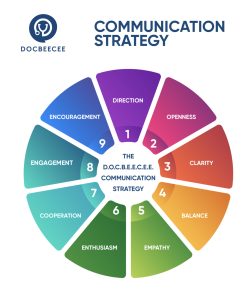By Dr Brighton Chireka
As healthcare professionals, having strong leadership skills can help to ensure the best possible care for patients. This includes the ability to make decisions with confidence, influence others positively, motivate teammates, anticipate potential issues and be flexible in different situations. Being a successful leader does not come naturally, but is instead developed over time through hard work and dedication. Focusing on working on your leadership skills today can help you become an even better team member in the future!
As a healthcare professional, developing your leadership skills is essential to ensure that you are able to provide the best possible care for your patients. Here are 30 reasons why you should develop your leadership skills:
1. Integrity
Having having strong moral principles and adhering to them will help you make decisions that are in the best interest of your patients.
2. Delegating:
Being able to delegate tasks effectively will help ensure that all tasks are completed efficiently and on time.
3. Communication:
Having strong communication skills is essential when working with other healthcare professionals and patients alike.
4. Self-awareness:
understanding yourself and how you interact with others will help you better understand their needs and provide better care.
5. Gratitude:
Showing gratitude for those around you will create a positive work environment and foster collaboration between colleagues.
6. Learning agility:
Being able to quickly learn new information and adapt to changing situations is key in providing quality care in a fast-paced environment.
7. Influence:
Having the ability to influence others can be beneficial when trying to get buy-in from colleagues or motivate them towards a common goal.
8. Empathy:
Being able to put yourself in someone else’s shoes will help you better understand their situation and provide more effective care for them.
9. Time Management
Managing your time effectively will ensure that all tasks are completed on time without sacrificing quality of care or patient safety standards.
10. Problem solving
Able to identify problems quickly and come up with solutions is essential when dealing with complex medical cases or difficult situations with patients or colleagues alike.
11. Interpersonal skills
Being able to interact well with others is key in creating an effective team dynamic as well as building trust between colleagues, staff, and patients alike .
12. Knowledgeable
Having knowledge of current trends, regulations, protocols, etc., is important in order for healthcare professionals to stay up-to-date on the latest developments within their field .
13. Teamwork
Working together as a team allows healthcare professionals to collaborate on projects, share ideas, and provide better overall care for their patients .
14. Technical Skills –
Understanding how different technologies work can be beneficial when it comes to providing more efficient care for patients .
15. Teaching Others
Being able to teach others about different aspects of healthcare can help spread knowledge throughout the organization .
16. Conflict Management
Knowing how to handle conflicts between staff members or between staff members and patients can help maintain a positive work environment .
17. Responding To Change
Being flexible enough to respond quickly and appropriately when changes occur can help ensure that patient safety standards remain high .
18. Adaptability
Being able to adjust quickly when faced with unexpected challenges or changes is key in providing quality care in any situation .
19. Decision Making
Making sound decisions based on facts rather than emotions can be beneficial when it comes time for making tough choices regarding patient care.
20. Emotional Intelligence
Understanding one’s own emotions as well as those of others can be helpful when it comes time for making decisions regarding patient treatment plans .
21. Strategic Thinking
Being able to think strategically about long term goals helps healthcare leaders plan out how they want their organization or department run over time.
22. Creativity
Thinking outside the box can be useful when it comes time for coming up with innovative solutions or treatments for difficult cases.
23. Visionary Leadership
Having a clear vision of where one wants their organization or department headed helps guide decision making processes which leads towards achieving desired outcomes.
24. Flexibility
Being open minded enough so that one’s plans don’t become too rigid allows room for change should circumstances require it .
25. Mentoring Others
Taking the initiative by mentoring younger staff members helps build relationships within an organization while also helping develop future leaders within the field of healthcare
26. Listening Skills
Having good listening skills allows healthcare leaders not only hear what their staff has say but also understand what they mean which helps create an atmosphere where everyone feels heard and respected.
27. Motivating Others
Knowing how best motivate one’s team towards achieving common goals helps foster collaboration between colleagues while also helping achieve desired outcomes faster than if done alone .
28. Networking Skills
Building relationships both inside and outside one’s organization can lead towards opportunities such as partnerships which could benefit both parties involved as well as one’s own career growth potential down the line .
29. Analytical Thinking Skills
Being able analyze data accurately helps inform decision making processes which leads towards achieving desired outcomes more efficiently than if done without data analysis first taking place beforehand
30. Patient Advocacy
Knowing how best advocate on behalf of one’s patients ensures that they receive the best possible care available while also ensuring that their rights remain protected at all times.
Leadership is a key characteristic of successful healthcare professionals. It involves self-discipline and commitment, but when developed, it can result in significant professional growth. Taking small steps each day towards improving leadership skills can help to build strong habits over time, leading to greater success. Setting goals and seeking feedback from peers are helpful tips for learning and growing as a leader. Developing leadership skills takes time, dedication and hard work, but the rewards can be worth it in the end. Start today on a journey towards becoming an effective leader in your field!
![]()




